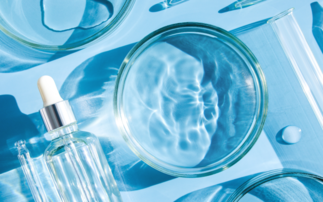At Unilever we want to know what you think about our Compressed deodorants innovation
We've created an infographic where you can find out more about our Compressed range of deodorants and tell us what you think of them - click here to discover more.
Compressed deodorants are the biggest sustainable innovation the aerosol category has seen in over 30 years, as the reengineered spray system means that a 125ml Compressed can lasts as long as a 250ml traditional deodorant but with 50% less gas, 25% less packaging and therefore 25% less aluminum. That means that the overall carbon footprint of the aerosol industry could be reduced by 25% on average.
Unilever launched Compressed aerosols in 2013 as part of the Unilever Sustainable Living Plan and their commitment to reducing the environmental footprint. And for this same reason, Unilever has recently published a guide on how to make a Compressed deodorant and to encourage other manufacturers to adopt Compressed technology to reduce the environmental impact of the aerosol industry. Sustainability doesn't have to be competitive. Read more on why everyone should #gocompressed.







